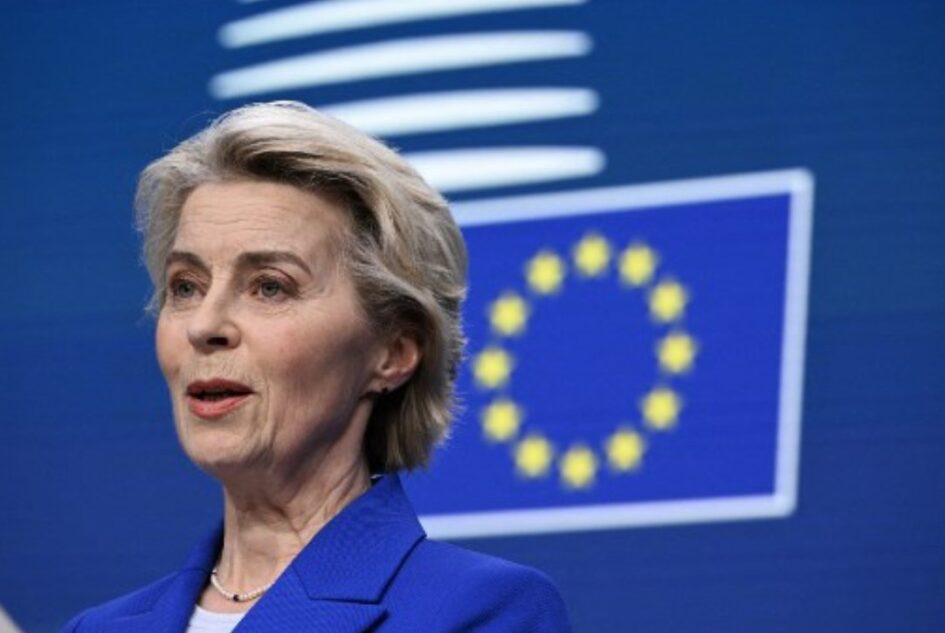
On 7 January, Meta announced the closure of its fact-checking program in the United States, paving the way for a similar decision in Europe. At the same time, Google is considering withdrawing from its commitment to supporting the fact-checking community under the European Union’s Code of Practice on Disinformation. These decisions would have a disastrous effect on Europe’s information space. Reporters Without Borders (RSF) and the European Federation of Journalists (EFJ) have sent an open letter to the President of the European Commission, Ursula von der Leyen, asking her to act decisively on the basis of the Digital Services Act (DSA).
We have been fighting really hard to get impactful legislation on such an important issue as regulating Big Tech. While not perfect, it is a start towards making the giant players in our fragile information ecosystem accountable, because European citizens have a right to reliable and accurate information. It is now up to the European Union to enforce its own piece of legislation, which is unique in the world, said Renate Schroeder, EFJ Director.
Read the full text below:
Dear President von der Leyen,
We are writing to you today to ask you to prevent the implementation, in the European Union (EU), of the unilateral decisions recently taken by the company Meta concerning the termination of its third-party fact-checking program and, if necessary, to initiate all measures, including sanctions, provided for by the Digital Services Act (DSA).
On 7 January 2025, Meta announced a wholesale change to how it applies its content moderation policy on Facebook, Instagram and WhatsApp platforms. Part of Meta’s plan is the decision to end partnerships with fact-checking organisations in the United States. It paves the way for a similar decision in the EU down the road.
Meta’s decision, if applied on EU territory, would constitute a serious and immediate attack on the integrity of the European information space, as well as on the democratic sovereignty of the Union. It would cause significant harm to the recipients of Meta’s services, and could even pose threats to public safety in all or part of the Union. Allowing European citizens to be unrestrictedly exposed to hate speech, disinformation and manipulative content on digital platforms as powerful as Facebook and Instagram would be a violation of the DSA and would transform the informational chaos we already know into an informational and democratic crisis.
In doing so, Meta would retract on earlier statements that it wished to create a safe and open environment for its users. In addition, such a decision, if applied within the EU, would conflict with its 2022 commitment to the EU Strengthened Code of Practice on disinformation, in particular commitment 30 on “Cooperation with the fact-checking community.”
We call on you today to forcefully resist the pressures exerted against European democracy by firmly upholding the essential principles and freedoms on which it is founded, including the right to freedom of opinion and expression, media freedom, and the right to information, and by taking the following actions:
immediately opening an investigation to assess the transnational consequences on EU territory of Meta’s announcement to close its fact-checking program in the United States. This procedure must be initiated without waiting for the publication of Meta’s next annual transparency report. It should enable the European Commission to establish a potential breach of the risk mitigation obligation (article 35 of the DSA). For the purposes of this investigation, the Commission will be able to draw on the conclusions of the investigation that is currently underway in relation to X (formerly Twitter);
immediately obliging Meta to perform an in-depth assessment of the consequences of its expected decision to terminate its fact-checking program in the EU and its replacement by a system of “community notes” (article 34 of the DSA). In the interest of transparency for Facebook and Instagram users, it is imperative that this analysis be made public. Under no circumstances should it be used to justify the termination of the fact-checking program, but rather to objectively inform European citizens of the risks of misinformation to which they would be exposed by continuing to use the services provided by Meta if such a decision were adopted for the EU;
immediately oblige Meta to temporarily suspend its decision – should Meta decide to terminate its fact-checking program in the EU – given the serious and immediate harm that such a decision would cause to European users of the Facebook and Instagram platforms; interim measures should also be put in place, notably allowing fact-checking organizations to reintegrate into these platforms (article 70 of the DSA) until the relevant investigations have been completed.
Madam President, it is up to you to ensure that the legal instruments at your disposal through the DSA are applied firmly and without delay. The credibility of the Union depends on its enforcement of the laws it has adopted to protect its public space, its citizens and its democratic processes. Other means, including more coercive ones, will have to be considered if the company in question refuses to abide by these rules.
The next five years will be crucial in guaranteeing European citizens’ right to reliable information and protecting the EU’s information space from disinformation and information manipulation operations by authoritarian regimes. In addition to the existing legislative framework (DSA), we believe that more systemic measures are necessary. These should guarantee EU citizens’ right to effective access to a plurality of reliable sources of information on social media platforms.
Should you be interested in discussing the matter further, we would be delighted to submit proposals along these lines.
Yours sincerely,
Renate Schroeder, European Federation of Journalists (EFJ)
Thibaut Bruttin, Reporters Without Borders (RSF)
Source: EFJ
Photo: JOHN THYS / AFP



